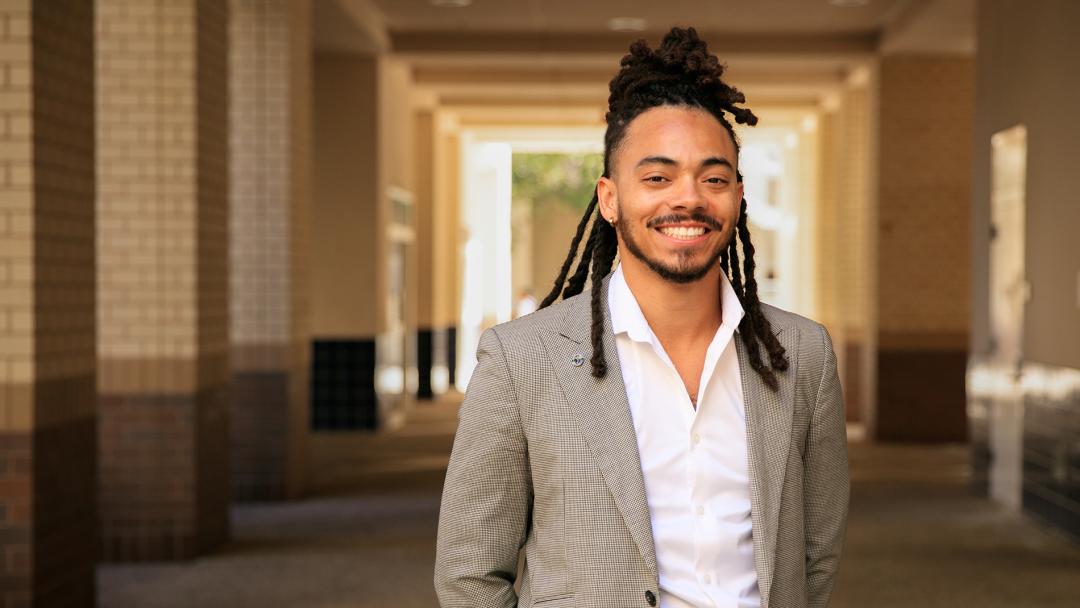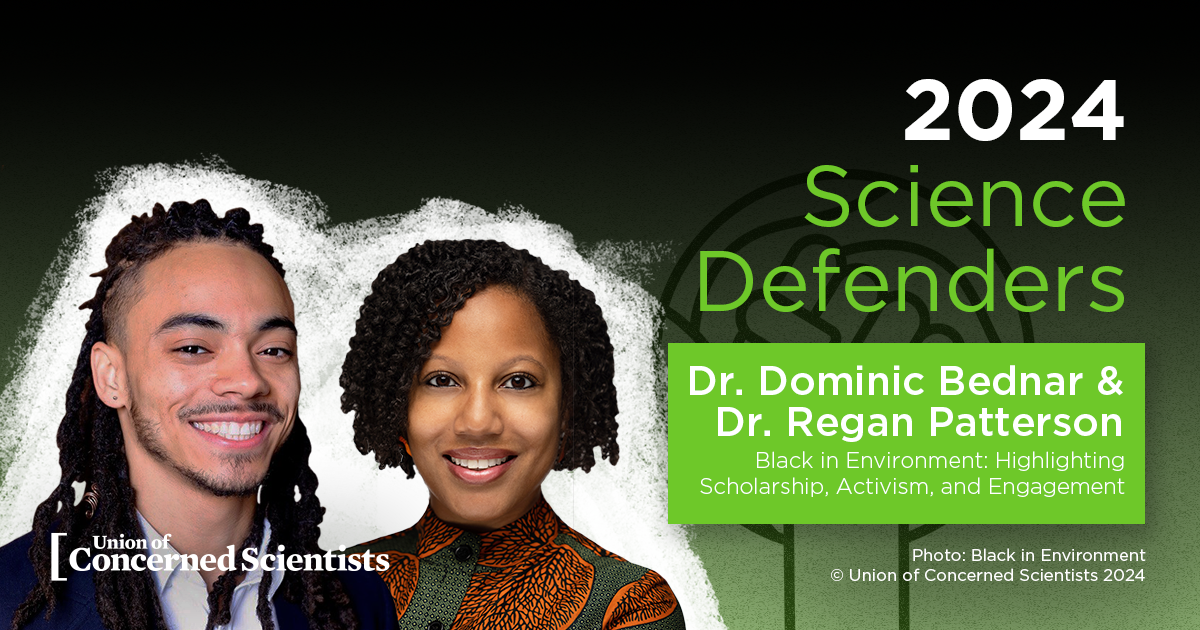
Union of Concerned Scientists honors Dominic Bednar
The Union of Concerned Scientists named UC Irvine urban planning & public policy Assistant Professor Dominic Bednar one of five 2024 Science Defenders.
At the end of each year, the UCS honors several individuals and groups who use science to improve the world and help people, including those who have taken a stand to protect science and scientists from political or other interference.
“We hope their courage, values, and compelling work will inspire you as they have inspired us,” reads the announcement on the UCS website.
The UCS honors Bednar along with Regan Patterson, who is an assistant professor of civil and environmental engineering at UCLA, for co-founding Black in Environment, a nonprofit organization that connects a community of scientists, professors, organizers and specialists to support more community-engaged research.
 The project was created during the COVID-19 pandemic, the rise of the Black Lives Matter movement and before Bednar and Patterson joined their respective UC faculties. She was a research fellow at the Congressional Black Caucus Foundation and he was a University of Michigan Ph.D. candidate who would frequently talk on the phone.
The project was created during the COVID-19 pandemic, the rise of the Black Lives Matter movement and before Bednar and Patterson joined their respective UC faculties. She was a research fellow at the Congressional Black Caucus Foundation and he was a University of Michigan Ph.D. candidate who would frequently talk on the phone.
According to the UCS announcement, a theme that would continually surface in their conservations was the need for an organization that would increase the visibility of Black environmentalists, build community and drive positive global change.
“We need to be the ones to bring this to the fore,” Bednar recalls saying to Patterson, before they would use social media to recruit volunteers to support Earth Day programming. They drew enough views and reposts that they were able to assemble a community and pull together a week of events for the first virtual #BlackInEnvironWeek in 2021.
Three years and three virtual event weeks later, the first in-person Black in Environment conference was held in April 2024 at Howard University, one of the most prestigious Historically Black Colleges and Universities. The event drew nearly 300 participants, panelists, and speakers from the environmental space across many disciplines—including Environmental Protection Agency Administrator Michael Regan.
"Receiving this honor feels incredible. We sought out to host this conference given the beautiful impact we’ve had hosting our virtual Black in Environment weeks since 2021. It became a space to coalesce Black environmentalists from all walks of life across the diaspora–sharing powerful stories of how they engage with the environment across several different environmental arenas," Bednar said recently.
"The conference was magical, seeing the manifestation of our community in person," he adds. "The honor feels especially important when efforts to sully DEI [diversity, equity & inclusion] initiatives and programs is at an all-time high. Recognition or not, our team is committed to connecting Black environmentalists globally whilst building and shaping the future science leaders that honor and center the communities of whom they serve and work with."
Patterson previously told UCS, “It was really beautiful to see the impact we had, which was beyond what we’d imagined. It reaffirms the need for this space and reinvigorates us to create it.”
The other 2024 Science Defenders are:
- Meteorologist John Toohey-Morales, for his “honest and emotional reaction" to Hurricane Milton’s unprecedented rapid intensification as it approached the Florida coast in October;
- Destenie Nock, an assistant professor at Carnegie Mellon University’s College of Engineering, who focuses her work on energy affordability and energy justice;
- Rebekah Tromble, associate professor in the School of Media and Public Affairs at George Washington University, who co-founded two groups in 2024 that seek to bolster and defend science as a public good, and to support scientists experiencing coordinated campaigns of intimidation and harassment.
A national nonprofit organization founded more than 50 years ago by scientists and students at the Massachusetts Institute of Technology, the UCS puts rigorous, independent science into action, developing solutions and advocating for a healthy, safe, and just future. Today, nearly 250 scientists, analysts, policy experts, organizers and communicators belong to the group.
-Matt Coker